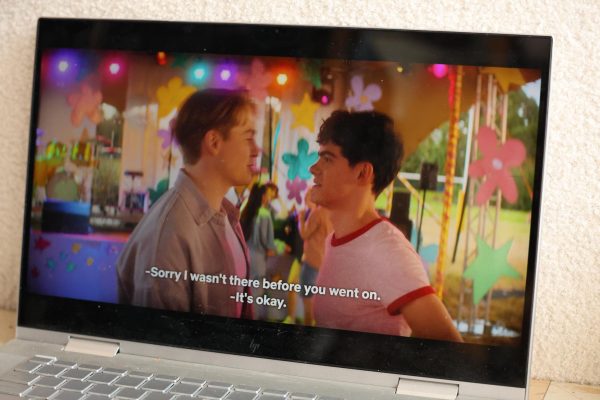Dead on Arrival: The Resurrection of “Vampire the Masquerade: Bloodlines”
Why cult classic video game’s successor “Vampire the Masquerade: Bloodlines 2” is, despite delays, worth the wait. (Courtesy of Twitter)
As we inch closer to the original March 2020 release date for “Vampire the Masquerade: Bloodlines 2,” the long, long 17-year-long awaited sequel to “Vampire The Masquerade: Bloodlines,” I think it’s about time we take a good look at what exactly makes the original VTM:B such a cult classic video game.
VTM:B was never going to have an easy time of it. It was developed by Troika Games, a company that you could find under the dictionary definition of “underdog.” Troika Games was formed by three developers from “Fallout,” another game that could trounce any game released after 2010, even with half its code tied behind its back. True to its name — which refers to a group of three — the over-ambitious Troika Games only managed to release three games before going under for good. The last of these games was VTM:B, an unfinished game that had to compete with Valve’s own “Half-Life 2” after years of stalled development. In the end, VTM:B’s poor performance resulted in Troika’s untimely death.
Despite its studio-killing origins, VTM:B is a beloved cult classic with a lively fan community and a variety of mods, including an unofficial patch that is continuously updated. The unofficial patch is practically a staple of the game, with many refusing to play without it. Though the patch began as a series of much-needed bug fixes — on my first playthrough without the patch, I became trapped indoors to the point of needing a restart, not one, not two but three times — it has since split into a basic patch that serves the original purpose and a plus patch that adds various cut content that the developers were not able to include in the released product.
The patch is maintained entirely as a hobby by German chemist Werner Spahl, possibly the most insanely devoted video game modder I’ve ever seen. I put special emphasis on insane due to the fact that after ten years of working on the same patch, Spahl is known in the fan community for his admittedly questionable decisions when adding cut content into the plus patch. He’s made a lot of choices I personally don’t agree with, like creating a “cut” mission-based entirely on a developer mentioning that they’d intended to have a mission in a library. The library mission included in the plus patch is ridiculously bad. It’s poorly written, clashes with the original game, is devoid of any worthwhile content and the quest reward is a weapon that is much too powerful for the point in the game that you get it (ruining combat for the rest of the game). This along with other unnecessary and ill-advised changes makes this labor of love look a little bit more like a labor of lunacy.
What, then, could possibly motivate this kind of effort for a game that was basically taken out of the oven before it had time to cook? The simple answer is missed potential. Despite everything, VTM:B is a work of art. It’s one of the finest RPGs I’ve ever played, and the parts of the game that were implemented clearly had a lot of care put into them. The characters are well-written and exhibit facial animations with a degree of sophistication that I haven’t been able to find in any game I’ve played since. There’s an amazing amount of attention given to the atmosphere in the game. You can really feel the setting of the World of Darkness, an L.A. that is lawless and gritty, bursting with serial killers, inept law enforcement and the very best of early 2000s counterculture. It’s grounded in the late ’90s-early 2000s grimdark edge, but rather than feeling dated, it’s become a period piece showing the best of the era that birthed a generation of Matrix fanboys and vampire roleplayers.
As we look on at the complete disaster that has been VTM:B 2’s development, from the release date being delayed from 2020 to 2021, to the lead writer Brian Mitsoda, who many credit with the successful writing of the first game, being fired in August 2020, to the announcement made just yesterday that the game would not be released on its delayed 2021 release date and is no longer being developed by Hardsuit Labs, we can look back at the equally ill-fated release of the original VTM:B, and perhaps congratulate Paradox on their commitment to releasing a sequel that is sure to kill as many careers as the original.

Hasna Ceran is a junior double majoring in economics and Middle East studies. She began by writing the USG Column for Volume 101 and served as an Assistant...













































































































































































































